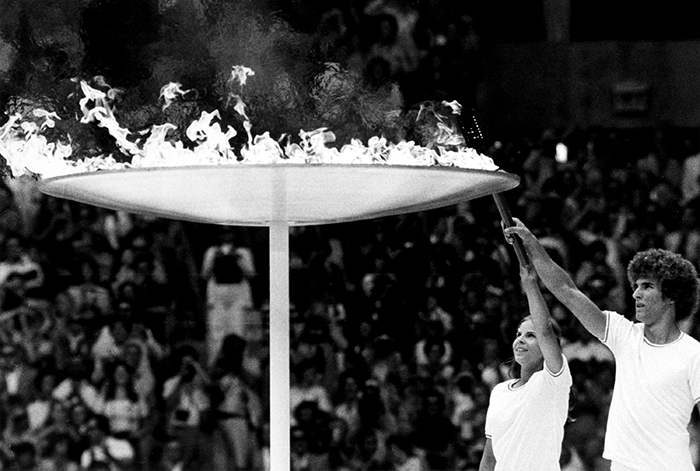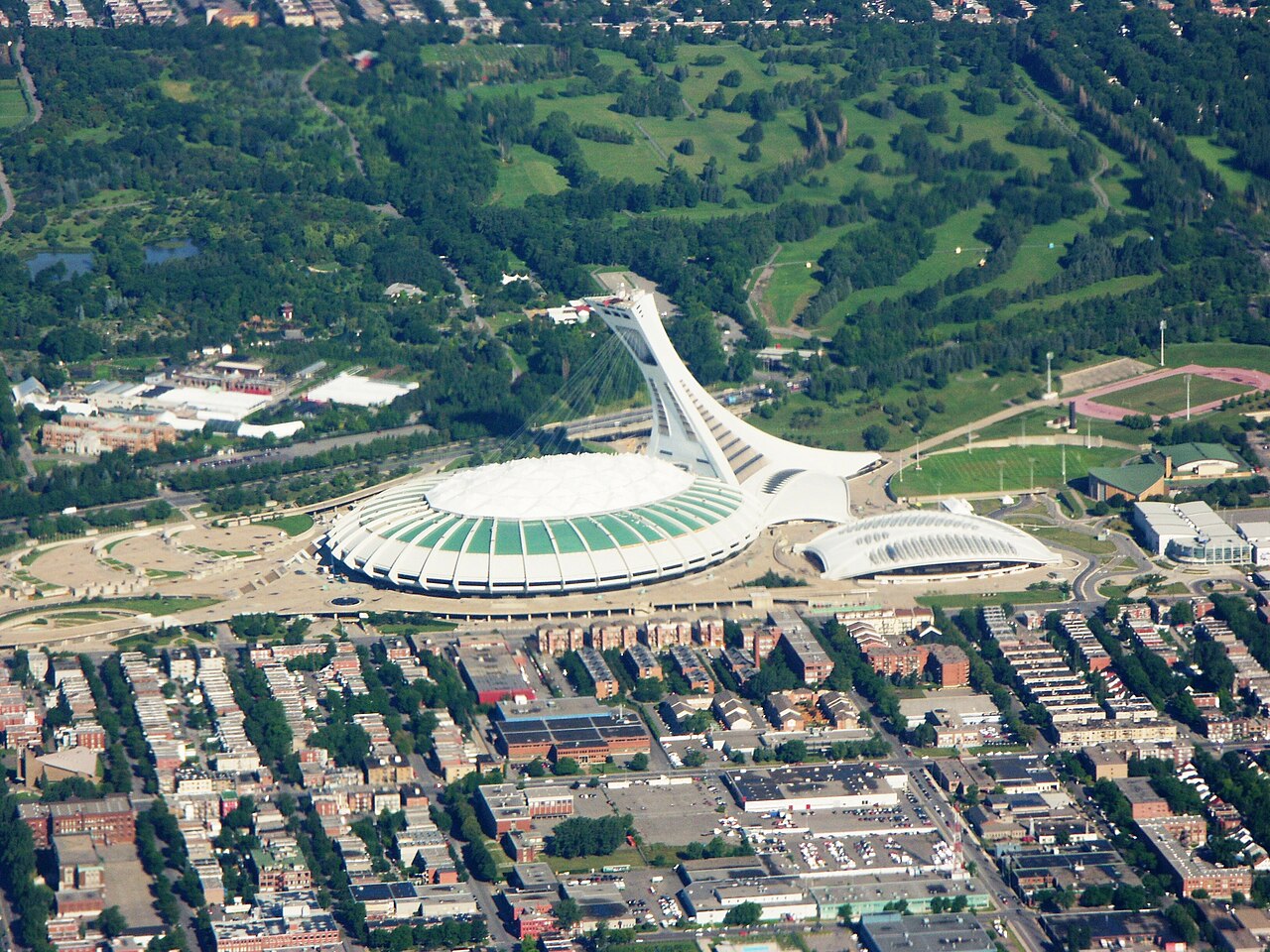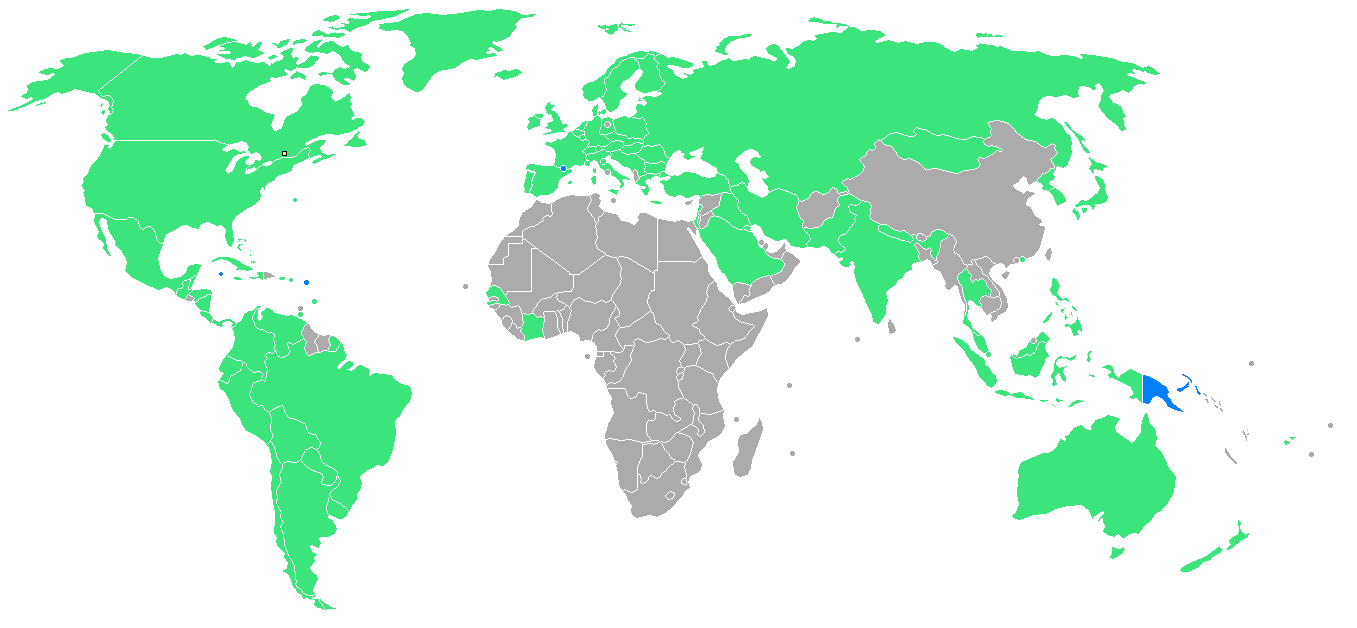The price for security in Montreal was, according to the past scholarship on the Olympics, more than $100 million. However, this figure is not based on evidence but, rather, statements from public officials and the media in 1976. In truth, the actual cost was substantially lower. An initial federal budget of $14.3 million dollars for the RCMP was later augmented to $23 million. Most of the costs were associated with additional salaries and overtime pay, accommodation, travel, renting space for the operations centre, administrative support and equipment. In addition, the Department of National Defence estimated that it cost $21 million to provide security for the Olympics. COJO paid $1.8 million for private security. The Montreal Urban Community Police also had a budget of $1.8 million for the Olympics (including regular salaries that would have been paid anyway). The Ontario Provincial Police paid an extra $1.9 million to cover the cost of having 350 officers provide security for the royal visit and the sailing competitions in Kingston.
The unknown costs are those associated with the Toronto Police Services, National Harbours Board Police, Manpower and Immigration, and the Montreal Fire Department for overtime pay. It is also unclear how much it cost for the Quebec Provincial Police to provide additional security for the Olympics; however, given the number of officers they assigned to the games, their expenses would have been no more than the Montreal police’s budget of $1.8 million. Therefore, at most, the cost for security at the Montreal Olympics was $52 million. This expense was inconsequential compared to the staggering expense of $1.6 billion to stage the event. Still, $52 million is an impressive sum. It was dramatically higher than Munich’s paltry $2 million budget four years earlier.

Technology was not a major part of the security operation. Security for the Montreal Olympics was largely dependent on manpower and local knowledge. For example, in 1976, police still relied heavily on manpower for surveillance: the RCMP assigned eight teams of nine officers for tracking people, and a single individual required three teams (27 officers). The scale of the Olympics also highlighted a weakness in the Security Service’s surveillance capabilities: they had to assign individual officers who could recognize known subversives to each venue. The number of locations, however, made that impossible. They had to depend, rather, on poorly designed photo albums to identify individuals as they entered the venue. It was also extraordinarily difficult to employ officers from outside Montreal because surveillance required extensive knowledge of the city, Moreover, the Security Service had an “extreme scarcity” of bilingual officers. The RCMP was a predominantly English force (even the newsletters to its members were in English) with few francophone members, especially within the Security Service, and operated poorly in Quebec. In this way, the police’s surveillance capabilities were severely limited.
Nonetheless, the RCMP and local police did employ new tools for surveillance and information gathering for the Olympics. The main technologies procured for the games included: identification tags; high speed fax machines; advanced sniper rifles; communication devices (e.g., 600 radios); special mobile vans for communication and surveillance; Cessna surveillance aircraft; and portable video transmitters. Fussey et al. argue that the Montreal Olympics were “the first widespread and systematic deployment of CCTV to feature at an Olympics.” In fact, the RCMP purchased only a dozen closed-circuit televisions, and these cameras did not play a major role in the security operation. Disembarkation cards were implemented in Canada for the first time in 1976, and became a permanent feature of air travel (Canada was one of the few countries in the world at the time that lacked a disembarkation card system). The airports and harbour patrol improved their system of passport and immigration controls during the Olympics.
In the end, there were no significant security problems or violent incidents. Only fifteen incidents were reported during the games, most of them as trivial as a journalist crossing security lines during the Queen’s visit, protestors distributing pamphlets, and one man charged with “being found naked in a public place” during the closing ceremonies. All the agencies involved in the operation offered a positive post-games assessment.

The Montreal Olympics was a turning point in Olympic history in at least one critical way: the games were more expensive to police than any previous Olympics. The security operation in Montreal was larger, more visible and highly centralized. It was by far the largest security screening operation in Canadian history at that time. The games also inaugurated a new era of using advanced technologies such as COILS to collect vast amounts of data on citizens. Montreal set a precedent that would produce a legacy of immense costs for future events. The Los Angeles Olympics in 1984 cost more than $150 million for security, and Seoul paid at least $111 million in 1988. The Innsbruck Winter Olympics in 1976 was considered one of the largest peacetime security operations in Austria’ history. In 1980, the Russians simply declared martial law and lined the streets of Moscow with troops and tanks. The Los Angeles Olympics was the largest peacetime security operation in American history at that time. Within a generation of the Montreal Olympics, the cost of security alone for hosting the Summer Olympics would easily exceed $1 billion.
In a curious historical sidebar, the topic of security costs was raised again in January 1980. The former Federal Security Coordinator chaired a committee to explore the implications of potentially hosting the Summer Olympics in 1980. The United States’ decision to boycott the Moscow Olympics following the invasion of Afghanistan raised the possibility that Montreal might be asked to act as an alternative venue. It is noteworthy that, drawing on their experience in 1976, the committee was less than enthusiastic about the prospect of another major security operation:
In our collective opinion, [security] will fall far short of the level of effectiveness we would consider necessary for such an event. Further, because of the demands it will impose on our manpower resources, it will have a serious debilitating effect on our enforcement obligations across Canada. Federal enforcement particularly will be crippled [Source: CHRH Archive].



